
A livestream session selling agricultural products on the TikTok Shop platform, with the participation of famous KOLs and KOCs - Photo: DUYEN PHAN
Livestream sales activities in Vietnam are exploding on platforms such as Facebook, TikTok, Shopee, Lazada, and YouTube.
It's easy for users to buy products, but when something happens, they don't know who to turn to... Especially when buying fake or counterfeit products, the buyer is no different from a victim of fraud... and can only cry out to heaven.
Buying live stream products is easy, but holding people accountable is difficult.
Once a victim of livestream shopping, Ms. Nguyen Bich Tram (25 years old, Ho Chi Minh City) said that the dress she received was completely different from the image in the livestream, so she asked to return the item, but the seller told the e-commerce platform that she sent a rag.
Because she did not record a video when delivering the goods to the shipper, Ms. Tram had to "swallow the bitter pill". Another time, Ms. Tram bought a thermos for more than 400,000 VND, advertised as being made of 304 stainless steel, but it rusted after a short time.
"I know I was scammed but there is no way to get compensation, I don't know who to contact," said Ms. Tram.
Meanwhile, as someone with a large following and having conducted many livestream sessions with sales ranging from several billion to tens of billions of VND, Ms. KL (33 years old, Ho Chi Minh City) admits that this profession is full of temptations.
"My teeth are white and healthy because I take good care of them and regularly go to the dentist for check-ups. But there were times when many parties invited me to advertise an electric toothbrush with very poor quality. If I agreed to praise it, they were willing to pay me 50 million VND immediately, without any sales commitment," she said.
According to Ms. KL, many online sellers lack product knowledge and only advertise according to contracts. Once, she even had a box of mixed cream and counterfeit cosmetics sent to her home, along with an advertising invitation promising high commissions.
Although income from livestreaming can be huge, many KOLs/Influencers easily shirk responsibility, while users often fall into the FOMO (fear of missing out) mentality, rush to order and then receive fake or poor quality goods and find it difficult to claim their rights.
Risks not only appear on e-commerce platforms but also spread on social networks such as Facebook, Instagram, and YouTube.
In many cases, after being reported for selling poor quality products, the seller immediately blocked the customer's contact. Therefore, when buying products through livestream sessions, whether from regular sellers or KOLs/Influencers, users also face many risks.
The case of Chi Em Rot Group Joint Stock Company (CER) is a typical example of taking advantage of its fame to continuously make false advertisements and buyers can only cry out.
Protecting consumer rights and strengthening market confidence
Speaking with Tuoi Tre , Mr. Doan Trong Khoi - General Director of Vimarket Vietnam Joint Stock Company, the owner and operator of the MasOffer affiliate marketing network - said that the proposal to authenticate and identify businesses, individual sellers, and livestream sellers as in the draft Law on E-commerce that has just been commented on by the National Assembly Standing Committee is very necessary and completely reasonable.
According to Mr. Khoi, the LiveCommerce wave (selling via livestream on e-commerce platforms) and the strong rise of the TikTok platform in the past three years, with strong support from major e-commerce platforms (TikTok, Shopee...), businesses and content creators in Vietnam do not want to miss this wave.
Users watching livestream sessions as entertainment and then making shopping decisions while relaxing... has gradually become familiar. At its peak, Live and Mega Live sessions bringing in hundreds of billions of VND in sales were not uncommon.
However, the monitoring and management of streamers, sellers, and brands using livestreaming to sell products... still have many loopholes. Are the origin and quality of goods as advertised? Who will be responsible if problems or incidents occur after the sale?
Therefore, according to Mr. Khoi, identification and authentication will help improve state management capacity, increase model transparency, ensure buyer rights, and at the same time force individuals and sales organizations to comply with the "rules of the game" more seriously.
Mr. Nguyen Pham Hoang Huy - Head of Digital Marketing Department (FPT Polytechnic) - also said that identifying sellers via livestream not only helps authorities collect taxes effectively, but also clearly identifies the person responsible for business activities on e-commerce.
"When a dispute occurs, authorities can quickly find out who directly sold the goods and assign responsibility instead of letting many parties deny or prolong the tracing time," said Mr. Huy.
According to Mr. Huy, in reality, there are many cases where brands release batches of qualified products, but when livestreaming, some sellers mix in fake goods to make a profit.
Suppose a brand cooperates with 10 TikTokers to distribute, if two people mix counterfeit goods, identification will help the management agency quickly determine who is violating, instead of letting everyone avoid responsibility.
"If there is identification and authentication from the beginning, tracing the origin and identifying violators will be done more quickly, transparently and effectively," Mr. Huy affirmed.

More and more tools support livestream activities - Photo: D. THIEN
Purify the market, prevent counterfeit goods
According to NielsenIQ's forecast, Vietnam's e-commerce will reach a scale of 45 billion USD by 2025, accounting for about 10% of total retail revenue nationwide. Livestreaming has become one of the main trends, but it also brings with it great challenges in terms of identification, information transparency and legal responsibility of sellers.
However, the reality shows that trust in advertising on social networks is increasingly fragile. According to Vietnam Report, more than 79% of users access new F&B products through online advertising, of which 31% are directly influenced by celebrities.
However, the lack of expertise of many KOLs and their tendency to promote low-quality products has led to a crisis of trust and many boycotts.
Therefore, according to Ms. Nguyen Thi Anh Hong - director of e-commerce, 24hStore retail system, bringing identification through VNeID into e-commerce will help purify the market, limit counterfeit and poor quality goods that are rampant on livestream.
"With a genuine sales system like 24hStore, this is the legal "support" to affirm reputation, creating a difference compared to non-transparent sales channels," Ms. Hong shared.
The floor supports identifying sellers and livestreamers
Speaking to Tuoi Tre , Mr. Phan Manh Ha - director of foreign affairs of Shopee Vietnam - said that the platform had planned to identify all sellers on the platform from 2024, before the Ministry of Industry and Trade proposed a draft law because "it considers identifying sellers a necessary measure to protect users and bring the best experience to buyers on Shopee".
"We support the need for the Law on E-commerce to have this requirement to improve the transparency and safety of online transactions, developing a healthy and sustainable e-commerce industry in the future," said Mr. Ha.
A representative of Lazada Vietnam also said that regulations on electronic identity authentication of sellers and livestreamers are necessary, creating a legal corridor to manage transactions and participants on e-commerce platforms.
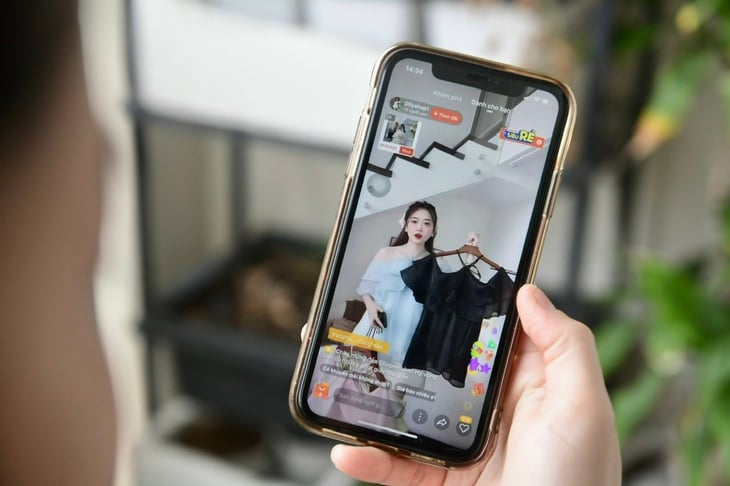
Buying and selling via livestream is booming in Vietnam - Photo: QUANG DINH
Must provide livestreamers with full legal documents
In addition to the regulation that e-commerce platform owners are responsible for identifying domestic sellers through VNeID and identifying foreigners through documents proving legality, the draft Law on E-commerce also provides many regulations related to livestream activities.
Accordingly, the platform owner must authenticate the identity of the livestreamer, publicize and implement mechanisms and measures to control the livestream sales content in real time. The seller must provide the livestreamer with legal documents proving that they meet the conditions.
Livestreamers are not allowed to provide false or misleading information about the uses, origin, quality, price, promotions, warranty policies and other content related to goods and services. Advertise correctly with the content of the advertisement that has been confirmed by the competent authority for goods and services that are required by law to confirm the content of the advertisement.
Many regulations are not technically feasible?
Ms. Bui Thi Viet Lam - representative of the US-ASEAN Business Council - said that using VNeID to identify sellers is an inevitable and necessary trend when Vietnam is building a database for many economic and commercial activities with the foundation of the National Database system.
However, according to Ms. Lam, policies need to encourage the development of e-commerce, because small households and small traders still play a major role in the household economy, ensuring livelihoods and economic activities. When included in e-commerce activities managed by large platforms, they will have the right to decide on the activities of millions of these business households.
According to Ms. Lam, the regulations for livestreaming activities are "too burdensome", because actively monitoring all content before and during livestreams is not technically feasible. "In addition, the requirement to keep images of all livestream activities is unnecessary, but should only focus on keeping specific content," Ms. Lam said.
Still loopholes for livestream?
According to Mr. Nguyen Pham Hoang Huy, the advantage of the draft Law on E-commerce is separating sales groups to control responsibilities, but there are still loopholes due to lack of comprehensive coverage.
Livestreams for entertainment, communication, personal sharing, teaching... are not subject to identification, so it is possible to circumvent the law to incorporate advertising, sales or insert false information. Therefore, it is necessary to consider expanding the scope of management, while tightening control over false advertising content. In addition, the identification process must be simple, quick, and avoid being cumbersome.
"Identification is a necessary step to ensure transparency, traceability and protect user rights, but it must be designed to be compact and tight enough to prevent fraud from the start," Mr. Huy shared.
Source: https://tuoitre.vn/dinh-danh-nguoi-ban-hang-online-tuan-thu-luat-choi-20250924224321221.htm






![[Photo] Soldiers guard the fire and protect the forest](https://vphoto.vietnam.vn/thumb/1200x675/vietnam/resource/IMAGE/2025/9/27/7cab6a2afcf543558a98f4d87e9aaf95)









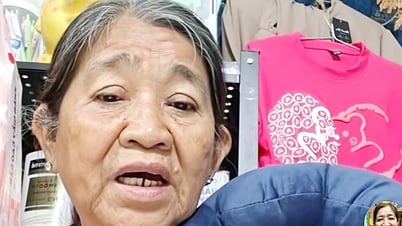













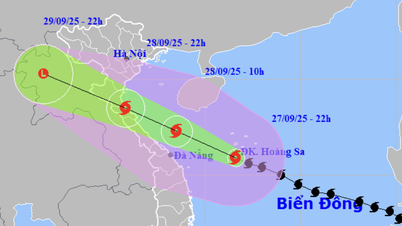



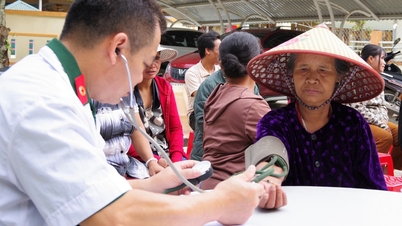


![[Photo] Prime Minister Pham Minh Chinh attends the 1st Hai Phong City Party Congress](https://vphoto.vietnam.vn/thumb/1200x675/vietnam/resource/IMAGE/2025/9/27/676f179ddf8c4b4c84b4cfc8f28a9550)






























































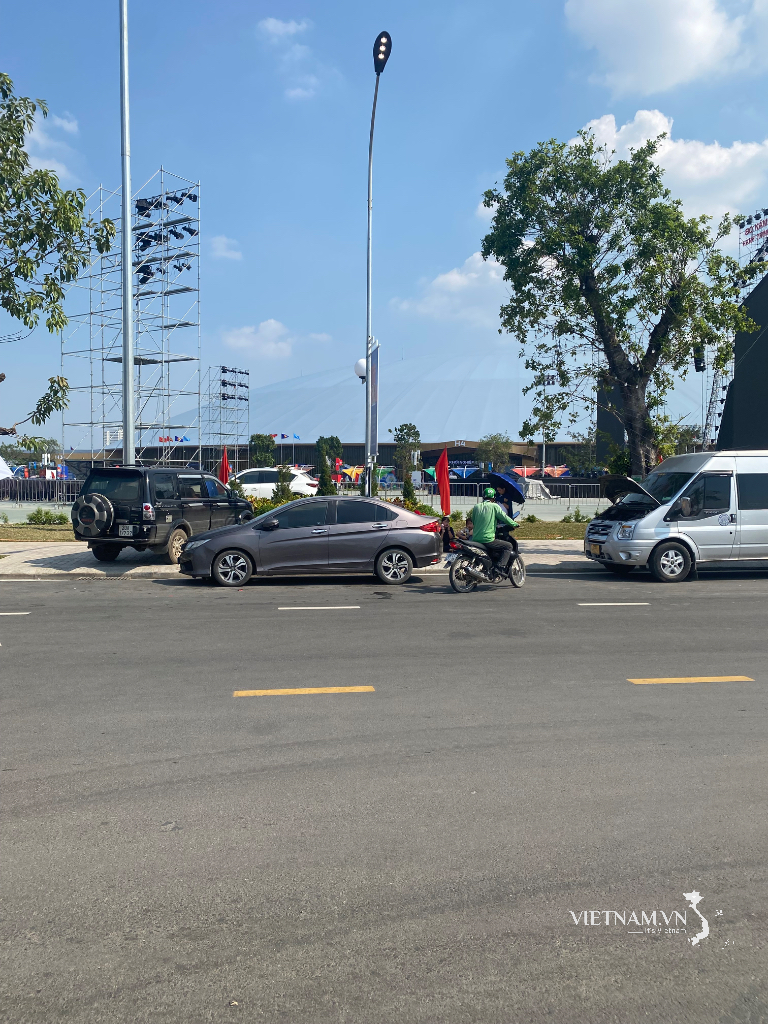

Comment (0)